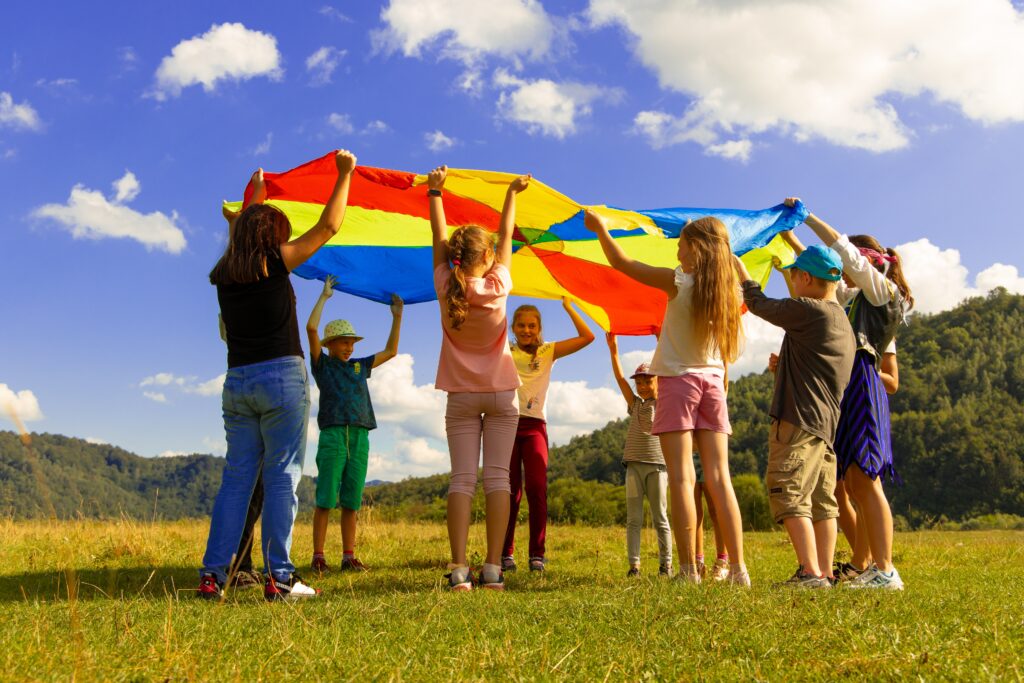Socialization concerns for homeschoolers baseless
Today, I want to talk about socialization. So many people claim that they worry about the socialization of their children and fear that homeschooling will make their children antisocial misfits. This is a baseless concern, and here’s why.
Homeschooled children are well-adjusted people who are able to interact and converse with many age groups from toddlers to elderly.
Public school socialization
Why do people believe public schools socialize children best? Students sit at their desks most of the school day and raise their hands to speak. They get in trouble for whispering out of turn, which of course, they must learn not to do because it isn’t conducive to learning because it distracts others. In elementary school, they play at recesses, and perhaps they can visit at lunch and during P.E., art, and music. When they do talk, they interact with children the same age or with their teacher. Yet homeschool kids may converse with family members throughout the day and break to play with neighborhood children of varying ages.
To blame homeschooling for socialization problems is a bunch of hogwash. I know public schooled children who won’t look me in the eye or speak to me. Public-schooled children shy away from adults or people not their age, it appears to me. I’ve seen public-schooled kids become animated with peers but clam up with strangers.
Being uncomfortable interacting with people isn’t caused by education methods.
Socialization starts in families
Socialization gets learned in families whether the children are homeschooled or schooled in public or private schools. Perhaps public-school teachers require class interaction that helps, but if a child doesn’t want to participate or want to talk, it can’t be forced. The child’s grade may suffer, but you can’t make anyone do something they refuse to do.
Do you and your family stay in your house and never interact with people? If so, then you have reason to be concerned. Otherwise, stop worrying about socialization. If you seriously want to homeschool, socialization concerns won’t stand in your way.

My families social opportunities
My children found plenty of social opportunities through youth groups, church musicals, Sunday school classes, sports through the local park and recreation department, piano lessons, field trips, library programs, and co-op classes. Getting together with extended family or friends counts toward socialization too. Your family may find social opportunities in other activities. Some participate in P.E. classes in the park or take art classes at the local art center. Some get involved in community theater. Discover available options through queries and digging!
Helping neighbors with yardwork or caring for their pets adds another level of socialization that also encourages responsibilities, respect, and confidence in new skills.
Socialization really means confidence in interacting with other people.
Do you talk with the teller at the bank, the librarian, and the clerk in the store? When you go to the library, do your children speak with the librarian about the reading material they like? When you give your children money, and they make a purchase, do they ask the sales person questions?
Children must learn to research and to think for themselves. They must learn to be their own advocate and to stand up for themselves. How do they do this? With what they learn.
Building relationships takes effort
Stepping outside of our comfort zone is uncomfortable for most people, but relationships and community with others keeps us healthy. Holing up in our homes and not speaking to anyone face to face leads to problems. People addicted to their phones have more socialization problems than homeschoolers who get outside to play and interact with people of all ages in different walks of life.
If you’re not afraid to socialize, your children will follow your example. Encourage your children to make friends and discover new interests. They won’t be bored, and they’ll be socialized naturally.
The problem isn’t about socialization opportunities; the problem is in limiting your extra-curriculars so you keep education a priority.
Certainly, there are exceptions, but don’t blame homeschooling for socialization problems.
How do you socialize with your family?
Photo by Artem Kniaz on Unsplash.